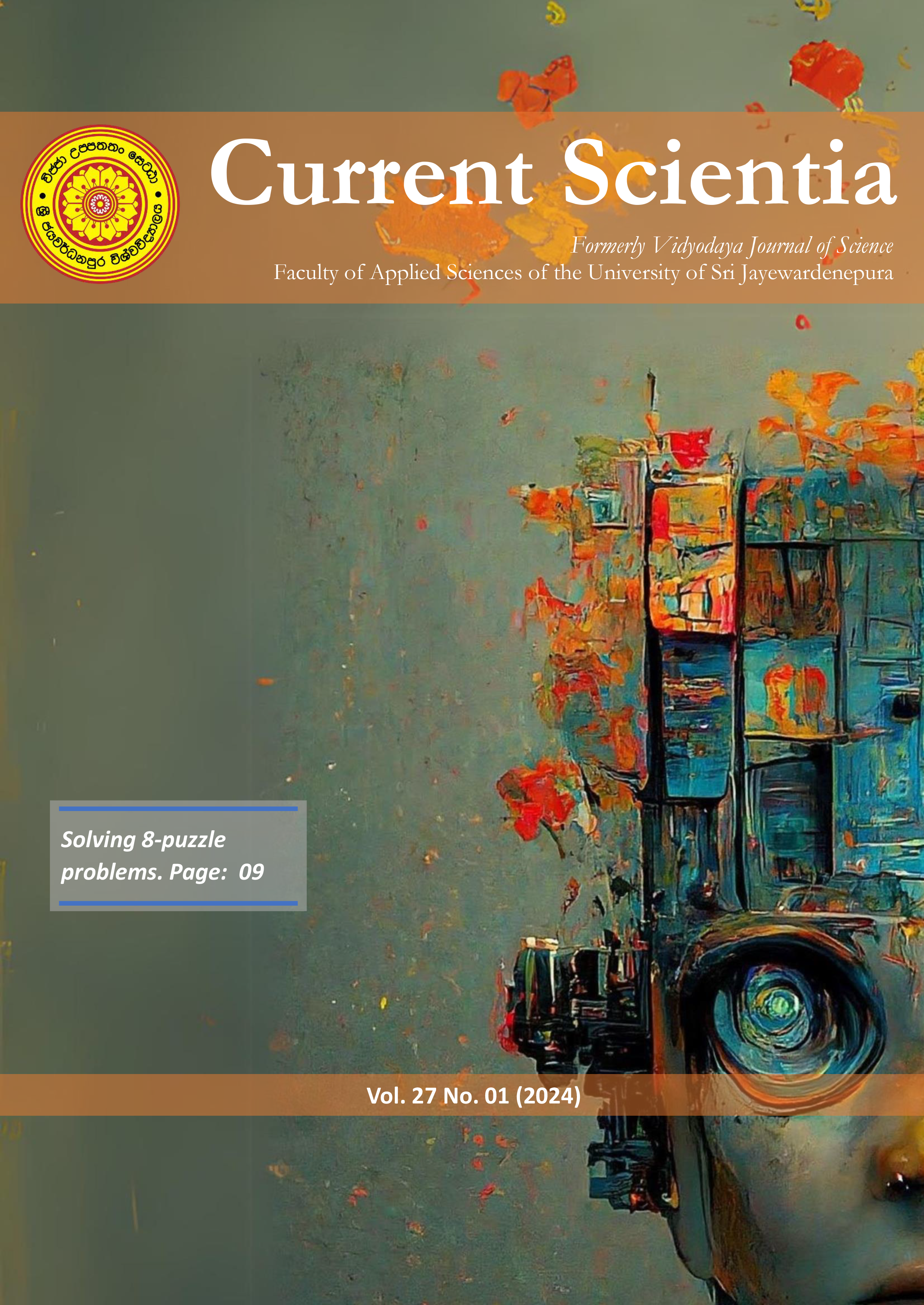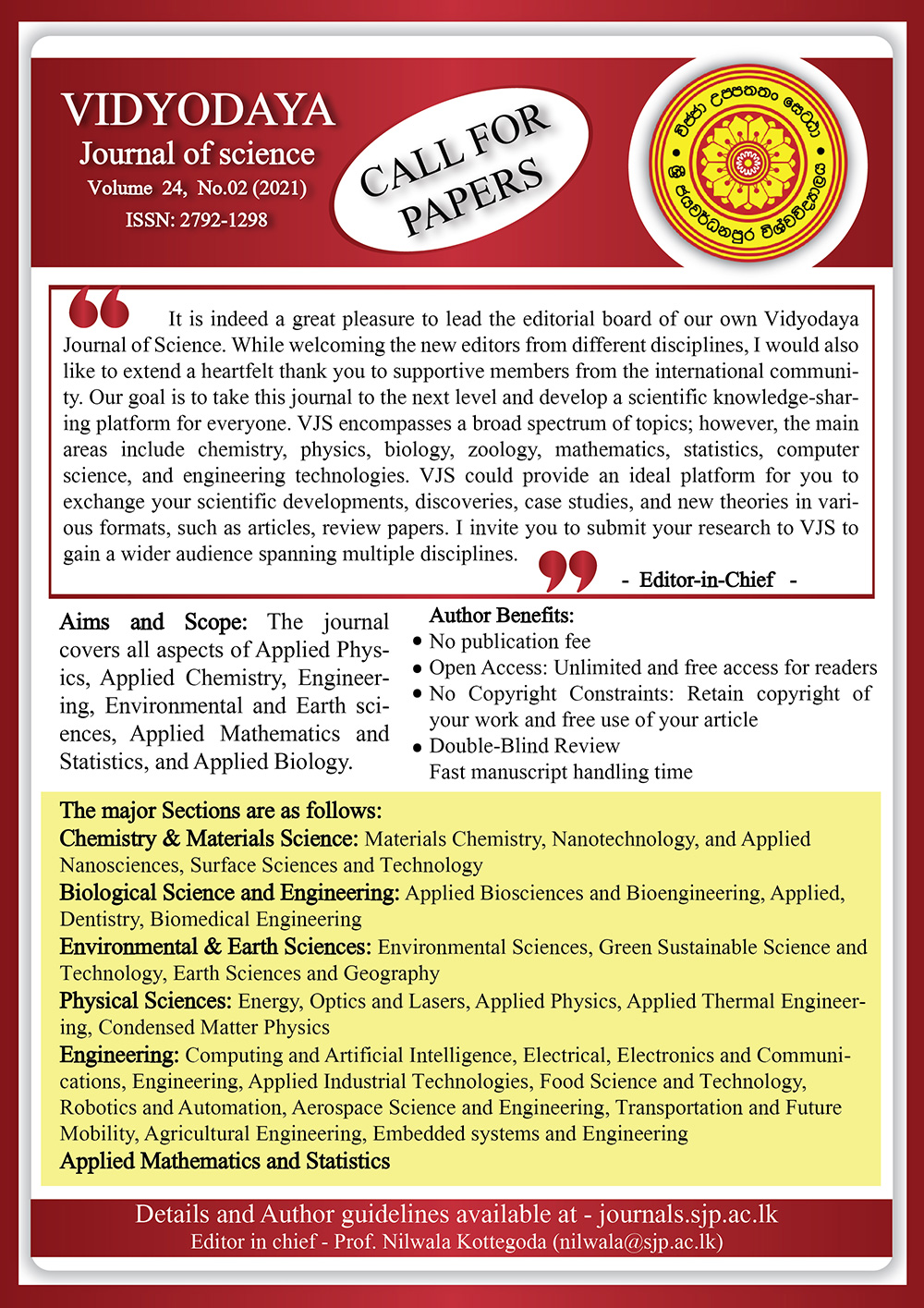Mycoremediation of Acetaminophen by the Fungi of Dothideomycetes sp. Isolate
DOI:
https://doi.org/10.31357/vjs.v27i01.7497Abstract
Resources like air, water, and land are found to be contaminated by a broad variety of pharmaceutical contaminants. The release of industrial effluents, hospital wastewater, and untreated domestic water, which contains medications, colours, pharmaceutical blisters, and heavy metals that are ecotoxic even at concentrations of nanograms to micrograms, is a significant cause of water pollution. Mycoremediation is an operative approach is to detoxify these contaminants. The fungal strain was isolated from pharma industrial wastewater. Identification of the fungi was founded on the morphological and 18s rRNA sequencing
technique. Isolate shared 99.82 % similarity with Zasmidium cellare and Cladosporium iridis strain CBS 138.40, suggesting the new species of fungi. The strain has received Gen bank accession number of OR081620.1. The fungal strain was found to degrade 85% of acetaminophen (1000 ppm) in 10 days when grown in mineral salt medium with acetaminophen as only carbon source. Glucose was found to enhance sporulation potential but not the degradative potential of the fungi. Identification of biodegradative metabolite was done by using thin layer chromatography, high performance liquid chromatography and liquid chromatography-mass spectroscopy. Mycodegradative metabolite of 4 Aminophenol was identified as acetaminophen.




